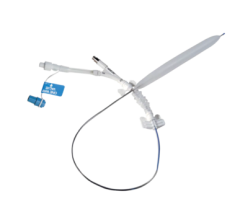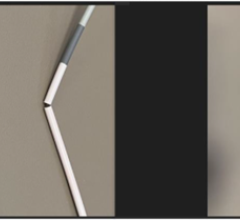
July 18, 2016 — Medtronic plc has received U.S. Food and Drug Administration (FDA) approval for the IN.PACT Admiral drug-coated balloon (DCB) in longer, 150 mm lengths. The new 150 mm-length balloon — available in 4, 5 and 6 mm diameters — will provide greater treatment options for long lesions in patients with peripheral artery disease (PAD).
"The long lesion (10-18 cm) sub-group outcomes from the IN.PACT SFA Trial at one year demonstrated superiority over balloon angioplasty," said John Laird, M.D., interventional cardiologist at University of California Davis Medical Center and co-principal investigator for the IN.PACT SFA Trial. "The availability of the 150 mm length sizes will expand proven treatment options to more patients."
The IN.PACT SFA Trial, a prospective, multi-center, randomized, controlled pivotal trial demonstrated, in a subgroup of patients with lesions >=10 cm and <18 cm, a clinically-driven target lesion revascularization (CD-TLR) rate of 5.3 percent for the IN.PACT Admiral DCB arm (n=79) and 32.4 percent for the PTA arm (n=36) (p<0.001). There were no device or procedure-related deaths, no occurrences of major target limb amputation, and a 3.9 percent thrombosis rate in the IN.PACT Admiral DCB arm versus 5.9 percent in the PTA arm through 12 months (p=0.326) in this subgroup.
The IN.PACT Admiral drug-coated balloon is a primary endovascular therapy that enables physicians to treat claudication and restenosis for patients with superficial femoral artery (SFA) disease. The DCB's primary mode of action is physical dilatation of the vessel lumen by percutaneous transluminal angioplasty (PTA), and the proven paclitaxel drug is intended to prevent artery narrowing by minimizing scar tissue formation.
The device received CE Mark in 2009 to treat PAD and was approved by the FDA in December 2014 to treat superficial femoral and popliteal arteries.
For more information: www.medtronic.com


 June 13, 2024
June 13, 2024 









